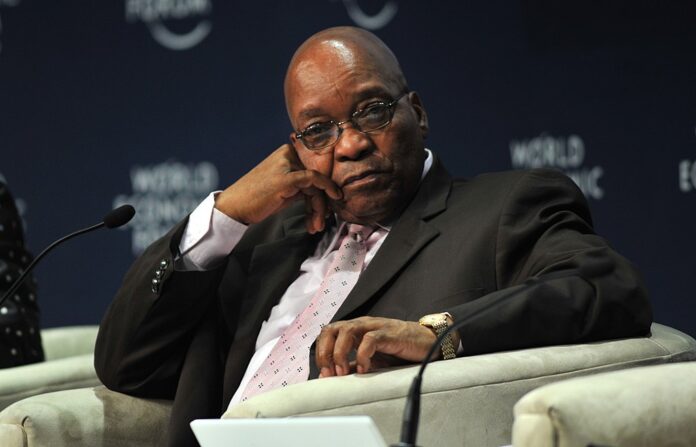Expulsion of members and forgery allegations threaten the integrity of upcoming elections
With South Africa’s national and provincial elections just 30 days away, controversies surrounding former president Jacob Zuma‘s uMkhonto Wesizwe party (MK) threaten to undermine the credibility of the electoral process.
Recently, the party expelled five high-ranking members, including Jabulani Khumalo, the individual who registered the party with the Electoral Commission of South Africa (IEC). Allegations of external infiltration and destabilization prompted the purge, raising questions about the party’s internal cohesion and leadership.
Embed from Getty ImagesAdditionally, accusations of signature forgery have surfaced, adding fuel to the growing controversy. Former senior MK party official Lennox Ntsodo filed an affidavit with the Western Cape police, alleging that the party engaged in widespread signature forgery to meet the IEC’s requirements for registration. Ntsodo’s claims suggest that the party obtained signatures fraudulently from a database of jobseekers in Cape Town.
The MK party’s growing support in recent polls is overshadowed by these scandals. Despite its rise to prominence in the polls, the party’s integrity is now under scrutiny, with doubts emerging about the authenticity of its supporters and the legitimacy of its candidacy.
Political analyst Tessa Dooms compares the MK party’s situation to that of the Congress of the People (Cope) in 2008, noting similarities in factionalism and breakaway movements from the ruling African National Congress (ANC). However, Dooms emphasizes that voter sentiment may not be swayed by internal party struggles, as supporters often view new parties like MK as protest votes against the ANC.
The implications of the forgery allegations are severe, potentially undermining the legitimacy of the elections and eroding public trust in the electoral process. The IEC’s response, or lack thereof, to these allegations will be crucial in ensuring the integrity of the elections.
Despite the urgency of the situation, the IEC has remained silent, prompting calls for proactive measures to address fraudulent activities. Dooms suggests that postponing the elections to address these issues may be necessary to uphold the credibility of the electoral process.
As the accusations unfold, the future of the MK party and the integrity of South Africa’s electoral democracy hang in the balance
